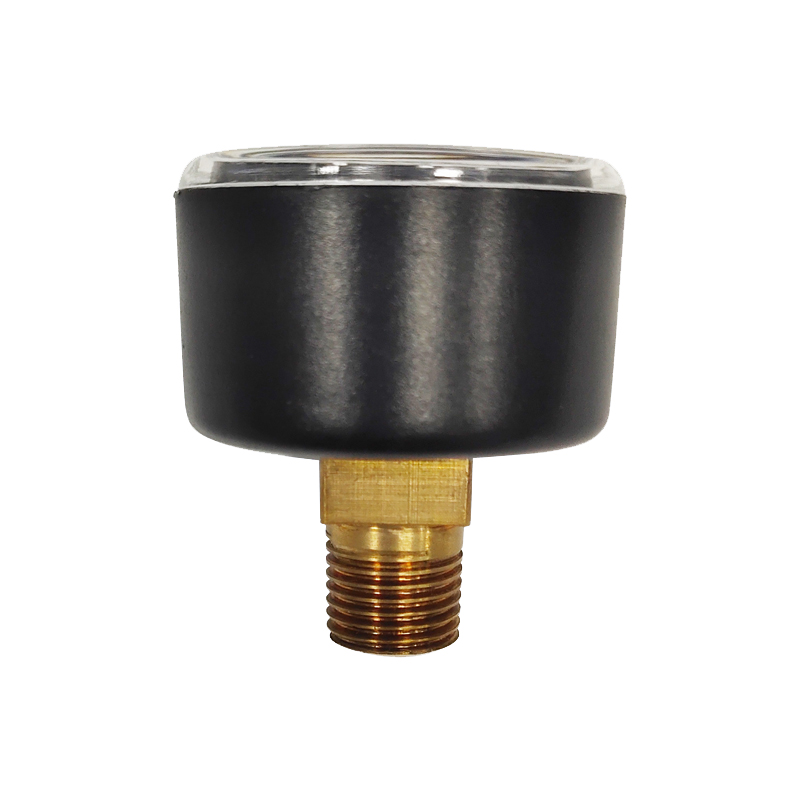
Des . 03, 2024 16:01 Back to list
Top Types of Diaphragm Seal Pressure Gauges for Accurate Measurement
Understanding the Best Diaphragm Seal Type Pressure Gauge
In industrial applications, pressure measurement is crucial for ensuring safety, efficiency, and reliability. When it comes to harsh environments where traditional pressure gauges may fail, diaphragm seal type pressure gauges become a vital solution. This article explores what diaphragm seals are, the various types available, their advantages, and tips for choosing the best one for your needs.
What is a Diaphragm Seal Pressure Gauge?
A diaphragm seal pressure gauge is a device that utilizes a flexible membrane (the diaphragm) to separate the pressure measurement element (like a Bourdon tube) from the process fluid. This design is essential when the process fluid is corrosive, viscous, or contains solid particles that could damage traditional pressure sensors. By isolating the gauge from harsh conditions, diaphragm seals extend the life of the instrumentation and ensure accurate readings.
Types of Diaphragm Seal Pressure Gauges
Diaphragm seal pressure gauges come in various types, each suited for specific applications
1. Metal Diaphragm Seal Metal diaphragm seals are the most robust option, designed for extreme temperatures and pressures. Made from materials like stainless steel, they are ideal for environments containing harsh chemicals and high pressures. Their durability makes them suitable for oil and gas, chemical processing, and other demanding industries.
2. PTFE (Teflon) Diaphragm Seal PTFE diaphragm seals are excellent for corrosive media as they offer a high resistance to a wide range of chemicals. However, they are less effective at handling high pressures compared to metal diaphragms. They are commonly used in pharmaceuticals and food processing, where product purity is essential.
3. Silicone Diaphragm Seal Silicone diaphragms are flexible and can handle low-pressure applications. They are particularly useful in sanitary applications, where hygiene and cleanliness are critical, such as in food and beverage processing.
4. High-Temperature Diaphragm Seal Some applications require measurement under high-temperature conditions. High-temperature diaphragm seals are engineered to function in environments exceeding standard gauge limits while still providing accurate readings.
Advantages of Diaphragm Seal Pressure Gauges
There are numerous benefits to using diaphragm seal type pressure gauges, including
- Protection Against Corrosion By isolating the pressure-sensing element, these gauges protect against corrosive process fluids that would otherwise lead to gauge failure.
best diaphragm seal type pressure gauge

- Extended Lifespan The construction of diaphragm seals often leads to enhanced longevity, resulting in reduced replacement costs and downtime.
- Reduced Maintenance These gauges typically require less frequent calibration and maintenance, leading to greater operational efficiency.
- Accurate Readings The ability to isolate the sensing mechanism from the process fluid reduces errors caused by temperature fluctuations and physical contaminants.
Choosing the Right Diaphragm Seal Pressure Gauge
When selecting the best diaphragm seal pressure gauge for your needs, consider the following factors
1. Fluid Characteristics Evaluate the chemical composition and characteristics of the process fluid, including its temperature, viscosity, and corrosiveness. This will help you decide on the appropriate diaphragm material.
2. Pressure Range Understand the pressure range you need to measure. Ensure that the selected gauge can handle the maximum expected pressure without risk of failure.
3. Temperature Range Consider the operating temperature of the process. Select a gauge that can withstand these conditions while still providing accurate readings.
4. Sanitary Requirements In industries like food and pharmaceuticals, ensure that the selected diaphragm seal complies with sanitary standards to avoid contamination.
5. Installation Requirements Take into account physical space and configuration, which might impact which gauge and diaphragm seal combination will work best.
Conclusion
Diaphragm seal type pressure gauges are indispensable in a range of industrial applications where traditional gauges may falter. By understanding the different types available and their respective benefits, industries can significantly improve their measurement accuracy and equipment lifespan. When selecting a diaphragm seal pressure gauge, carefully assess your specific requirements to ensure the best performance in your unique operational environment.
-
High-Precision 5 Valve Manifold Differential Pressure Gauge Suppliers
NewsApr.29,2025
-
High-Precision Diaphragm Vacuum Pressure Gauges Manufacturers & Quotes
NewsApr.29,2025
-
Omega Differential Pressure Gauges High Accuracy & Durability
NewsApr.28,2025
-
Low Pressure Differential Pressure Gauges Precision Solutions & Quotes
NewsApr.28,2025
-
Digital Diaphragm Pressure Gaauge Precision Measurement & OEM Quotes
NewsApr.28,2025
-
Differential Pressure Gauge China Price High-Accuracy & Best Quotes
NewsApr.28,2025
